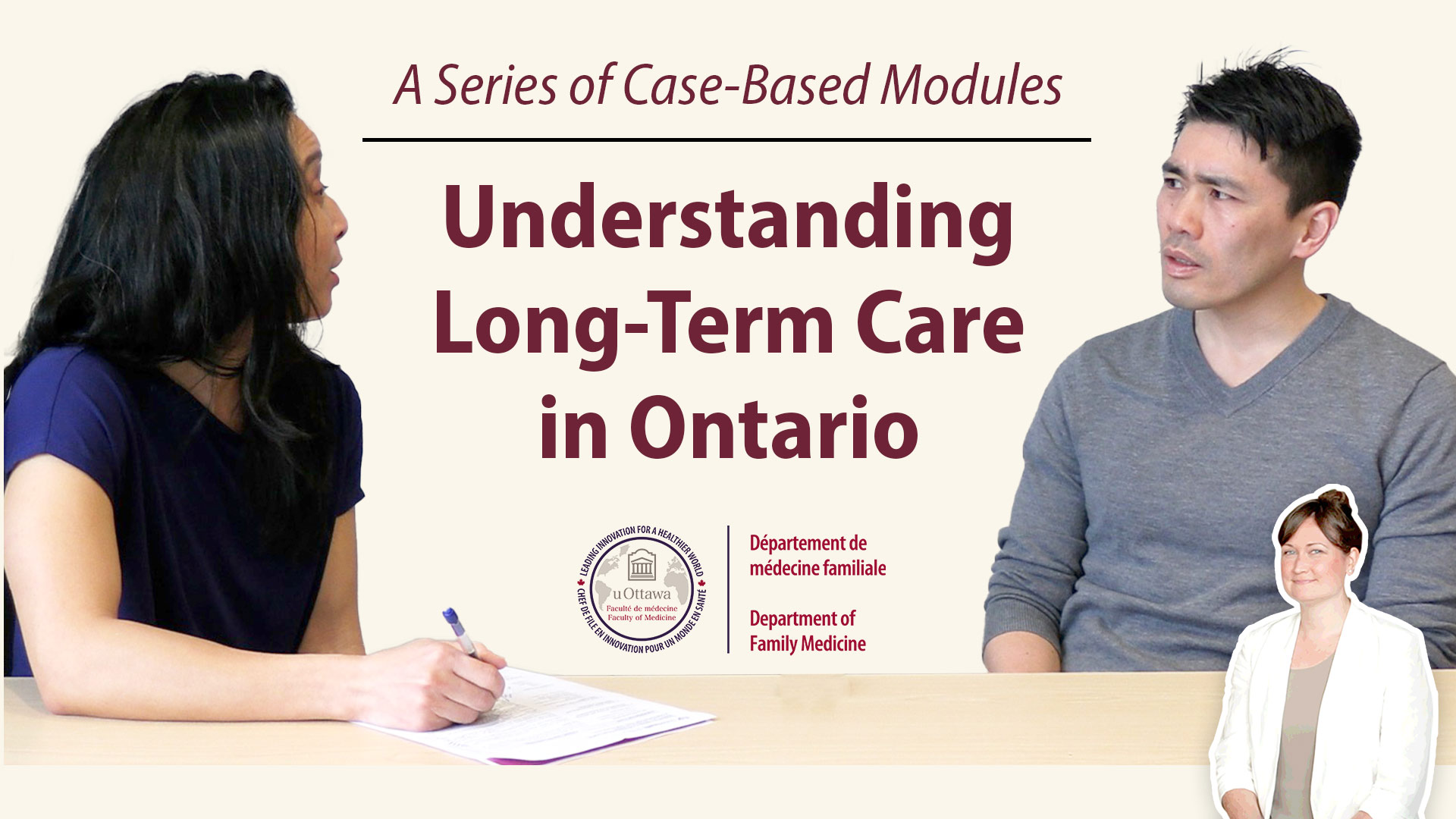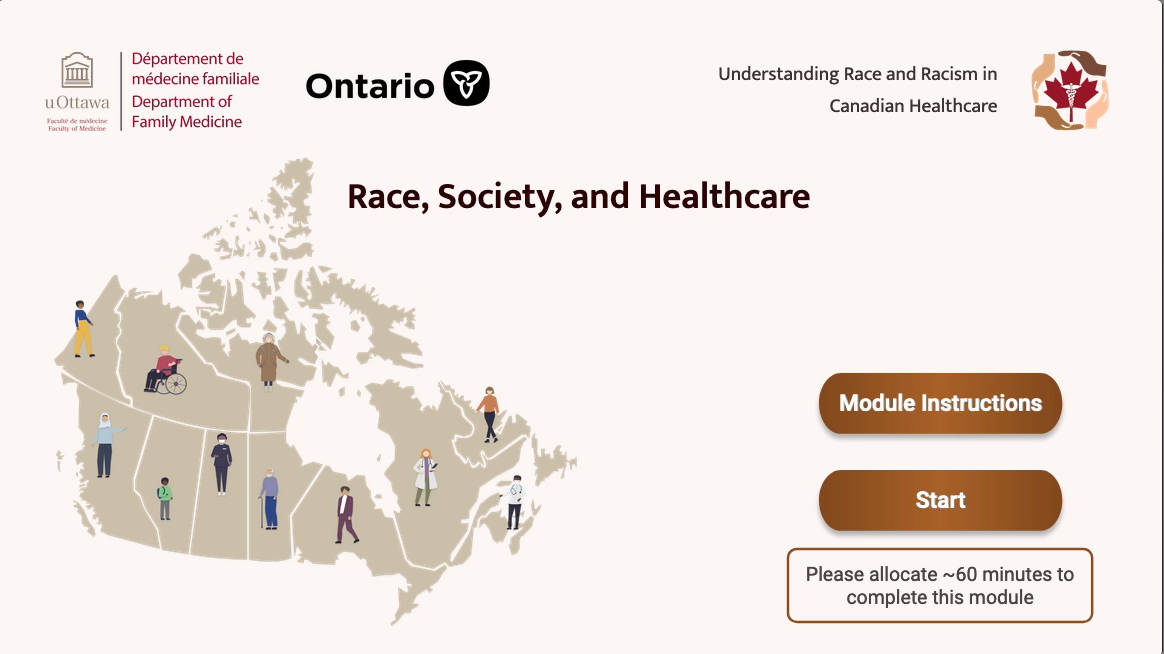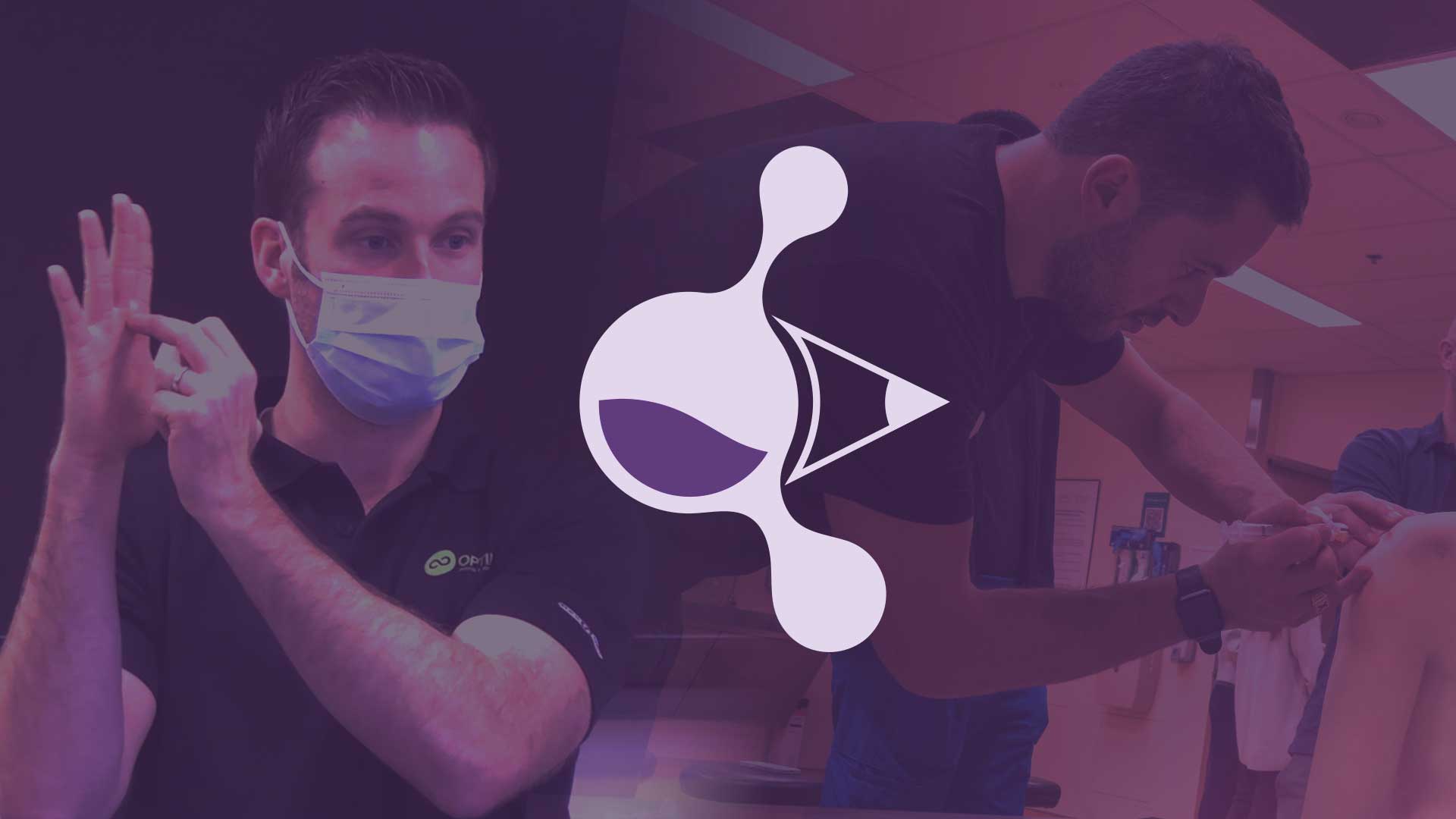Use our modules to improve your incorporation of anti-racism beliefs into your practice, quiz yourself on the joints of the human body or practice gynecological intake procedures!
Our Learning Modules are free and accessible to ALL learners through our Innovation Portal.








